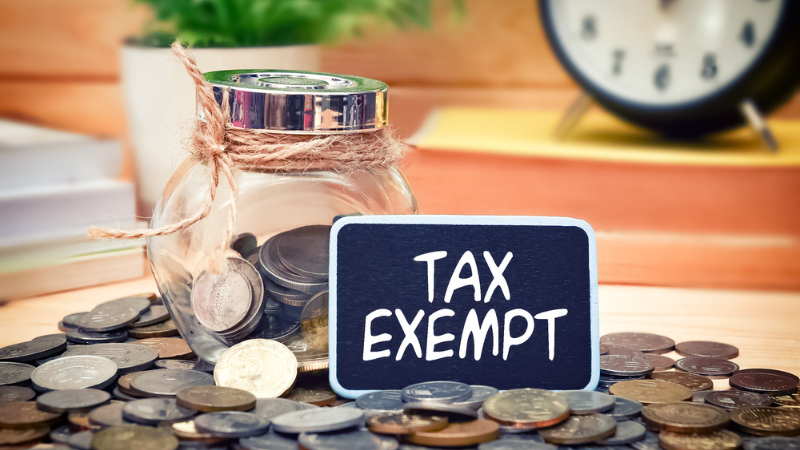
Most individuals often possess assets of some form like property, gold, jewellery or shares. Therefore, it is important to be aware of tax implications on the gain/loss from the sale of such assets. Tax liability on the sale of these assets depends on the holding period and is calculated under the head ‘Capital Gains’.
The tax chargeable on the gains made from the sale of capital assets is called capital gains tax. Capital gains tax can be long-term (LTCG) or short-term (STCG), depending on the holding period of the asset. Currently, LTCG is 10% for stocks and equity mutual funds whereas 20% with indexation for real estate, debt mutual funds, and other assets.
What are capital gains?
Profit or gain arising from the sale of assets such as property, gold jewelry or stocks is known as capital gains. Capital Gains can be further divided into two categories:
Long-term capital gain
If, for example, an individual sells his/her house after 36 months from the date of its acquisition, the profits arising from the sale are known as LTCG. This holding period of 36 months differs across capital assets. For equities and equity mutual funds the holding period is 12 months, whereas for immovable assets like house property, land, etc it is 24 months.
Short-term capital gain
If an asset is sold within 36 months from its acquisition, then the gain arising from it is called a short-term capital gain (STCG). For example, if an individual sells a house within 24 months from the date of acquisition, then profits from it fall under STCG.
The long-term and short-term capital gain classification is different when it comes to shares/mutual funds. For listed shares and equity-oriented mutual funds, a long-term capital gain arises if these are sold ‘after’ a holding period of one year and short-term capital gain is considered if the assets are sold ‘within’ one year.
What are capital assets?
A capital asset can be land, building, vehicle, residential property, patents, trademarks, machinery, leasehold rights, and also jewelry. It also includes rights in an Indian company, rights of management or control, or any form of a legal right in the company. Mentioned below are categories that do not form part of capital assets:
- Special bearer bonds (1991)
- Any stock, consumables or raw material, held for the purpose of business or profession
- Gold deposit bond issued under the gold deposit scheme (1999) or deposit certificates issued under the Gold Monetisation Scheme, 2015
- Personal belongings such as clothes or furniture meant for personal use
- Agricultural land in rural India
- 6½% gold bonds (1977) or 7% gold bonds (1980) or national defence gold bonds (1980) issued by the central government
Capital gains calculation on Sale of Property
Short term capital gains tax calculation
Short term capital gains tax on the sale of a property is calculated by including the short-term capital gain under the net income for the individual and is taxable on the basis of the applicable income tax slab rate. If, for example, the short-term capital gain is Rs. 10 lakhs and the person falls under the 30% income tax bracket, then he/she must pay 31.20% on Rs. 10 lakhs, i.e. Rs 3,12,000. Gain/loss from the sale of the asset is estimated by reducing the below-mentioned from the sales proceeds of the asset:
- Cost of purchase
- Improvement cost of the asset
- Expenses borne exclusively for the sale
Short Term Capital Gain = Sale Consideration—Cost of acquisition- Cost of improvement (if any)—Expenses incurred exclusively for the sale of the Asset.
Long term capital gains tax calculation
The long-term capital gain tax is calculated by multiplying the tax rate of 20.8% (including health and education cess) with indexation with the capital gain value. Indexation is the technique of adjusting the cost of an asset as per the inflation index. It increases the cost and reduces gains such that overall tax liability is reduced.
Long-term capital gains/losses have the benefit of indexation. An individual having long-term capital gains/losses and falling within the tax bracket of 30% also gets an advantage of a lower tax rate of 20%. Long-term capital gains are calculated in the same manner as short-term capital gains. However, in long-term capital gains, the purchase cost of the asset and cost of the improvement is replaced with the indexed cost of acquisition and indexed cost of the improvement.
Long Term Capital Gain = Sale consideration—The indexed cost of acquisition—The indexed cost of improvement—Expenses incurred exclusively for the sale of the Asset—Exemption u/s 54, 54F, 54EC if any availed.
Indexed cost can be calculated using the following formula:
Indexed Cost of acquisition = Cost of acquisition * Cost Inflation Index of the year of sale
Indexed Cost of Improvement=Cost of improvement * Cost Inflation Index of the year in which improvement took place
As per Section 54 of the IncomeTax Act, an individual or HUF while selling a residential property can avail tax exemptions from capital gains if the same is invested towards the purchase or construction of the residential property.
Capital gains calculation on Sale of shares
Short term capital gains tax
Short-term capital gain on listed shares/equity-oriented mutual funds (if sold within one year from acquisition) will be taxable at 15.60% (including health and education cess). STCG tax is levied as per the income tax slab rate of the individual. With regards to the sale of unlisted shares, these are subject to tax as per the income tax slab rate applicable to the individual taxpayer.
Long term capital gains tax on sale of shares
LTCG on equities/equity mutual funds is not eligible for the benefit of indexation.
For stocks& shares, equity mutual funds, and hybrid funds with investment in equities over 65%, for holding periods of over 1 year is considered as long term.
Capital gains tax calculation on sale of jewellery
Jewelry is considered a capital asset and any gain from the sale of a capital asset is taxable as capital gain. Depending on the period for which the jewellery is held, it can be taxed as short term capital gains or long term capital gains.
Gains from sale of jewelry are treated as long term capital gains if the jewelry is sold after three years from the time of purchase, else it is categorized as short term. Short term capital gains on jewellery sale are treated as an individual’s regular income and taxable at the slab rate applicable to the individual. The long term capital gains from jewellery are taxable at a flat rate of 20% after applying indexation.
Conclusion
Earning capital gains can be beneficial if reinvested correctly through various available investment options in the market. Also, tax incurred on capital gains can thereby be reduced and an investor can ensure higher savings.
FAQs
- What are the different types of taxable income under Capital Gains?
Under capital gains, any earnings made from the sale of a capital asset during a financial year is taxable. This can be short-term gains or long-term gains, depending on the duration for which the asset is held.
- Why are capital gains classified into long-term and short-term?
As per the nature of the gain, the amount of tax applicable can vary. To determine the applicable tax, capital gains are differentiated into long-term and short-term. Further, the tax computation process varies for short-term capital gains and long-term capital gains.
- Is there any indexation benefit in computation of capital gain from short-term capital asset transfer?
Indexation benefit is provided only for gains from long-term capital assets and not for gains from short-term capital assets.
- In case I sell a house purchased 4 years ago, do I need to pay tax on earnings from the same?
If you sell a house after 4 years of owning the same, it is considered as long-term capital gains. Therefore, any gains made from its sale are taxable under Capital Gains.
- How is capital gains tax calculated on mutual funds in India?
The profit from sale of mutual fund investments are considered as capital gains. Depending on the investment period, the capital gains on mutual funds are taxable as short-term capital gains or long-term capital gains.




















